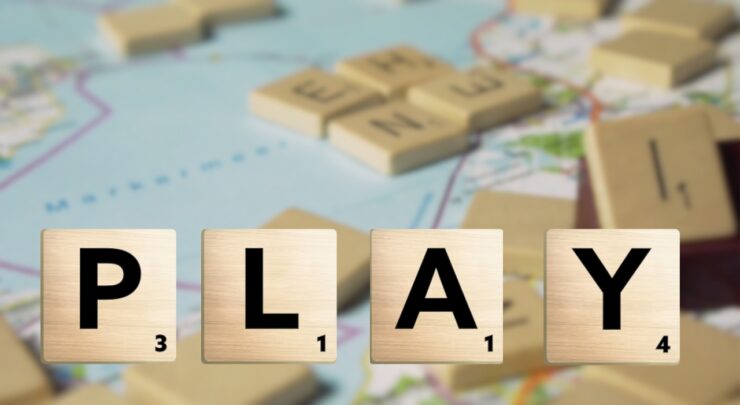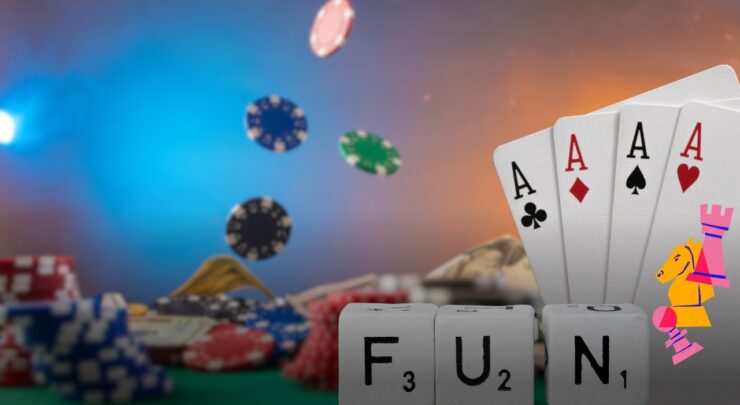There are hundreds of popular games to choose from today, especially thanks to our consumer technology. From smartphone apps to PlayStation games, it often appears as if there’s an endless variety of titles to enjoy.
But some games have been around far, far longer than these nifty devices. While some may feel that these more conventional and traditional games have had their time in the limelight, and now must yield to the shiny bells and whistles of the games of tomorrow, this bias is unfounded.
After all, a big part of the reason that we still know about many of these classic games is that they’ve been played, in various forms, across decades, centuries – and in some cases, even millennia. This surely suggests that these titles have someone to offer, even to modern gamers. Yet there’s no denying the fact that tech is now the preeminent means by which people access games.
Fortunately, many of our longest-lived and most loved games have made the jump to digital formats in recent years. And these are no pale comparisons to their brick-and-mortar counterparts. In fact, in many cases, these next-generation iterations incorporate welcome new features and innovative improvements.
Let’s take a look at some of the best examples of games that have successfully made the jump to the world of technology.
Poker

Poker has been around for some time, with its most popular modern variants, such as Texas Hold Em, emerging in the early years of the 20th century. Historians have even been able to trace the DNA of the game back to 17th-century Persia, where it went by the name of As-Nas.
Poker was one of the very first games to make the leap to digital platforms, with the so-called poker boom of the early 2000s popularising competitive play of the online version of this title.
Nowadays, many of the reputable platforms that contributed to the rise of online poker are still going strong, and these sites remain the best place to access these titles, learn the basic poker rules, and even compete in informal competitions.
One of the key things that digital variants bring to classic games is analytics, and nowhere has this proven to be more true than in online poker. Players can track everything from wins, losses, to individual hands – letting them reflect on their gameplay, devise new strategies and continually improve their game.
Chess

While poker can be traced back a couple of hundred years, chess can lay claim to much greater antiquity. In fact, chess began to take on its recognizable form all the way back in 5th century India, under the Gupta civilization.
Known then as chaturanga – a game that is still played in India today – this board game that prioritizes strategy, aggression, and tactical play has been a firm favorite of kings and generations right down through to the modern age.
In truth, the continuity of the game is staggering. The modern-characterized pieces of chess, for example, all have their roots in the ancient game. The bishop was once a war elephant – with the conical piece actually standing in for a stylized elephant’s head, replete with tusks.
Rooks, the castle-shaped pieces, were chariots; their name came from the Persian chariot, ‘Rukh’. Knights are, naturally, the cavalry, and pawns were soldiers. These were considered the ‘four limbs’ of the ancient Indian army, which is from where the name chaturanga (literally: four limbs), derives.
Chess then traveled north, to the courts of early medieval Persia, and this is where it is believed to have acquired its present name, the word ‘chess’ being a corruption of the Persian for king, ‘Shah’.
From there, it was on into Europe, where it has remained consistently popular for over 1000 years. Now chess is predominantly played on a single website, Chess.com. This has served as the de-facto home of chess online since 2005. It offers players rich ranking features, in-depth tuition, and the opportunity to rub shoulders with some of the game’s elite players.
Cribbage
The main goal in cribbage is for a player to be the first to score a predetermined number of points, typically 121, achieved through creating specific card combinations and strategic play.
Cribbage originated in the early 17th century, attributed to the English poet Sir John Suckling, the game was unlike other card games at the time as it required a wooden “cribbage” board to play.
This board was modeled after a horse race track, symbolizing the fast-paced and competitive gameplay of cribbage. The game, with its unique blend of strategy and luck, has seen a resurgence in popularity, especially in online formats.
Numerous websites such as Cribbage Online and Cribbage Pro offer cribbage, where players can test their skills against a computer or other cribbage players from around the world.
Scrabble

Online Scrabble, much like its physical counterpart, challenges players to form words from a set of tiles, each carrying its own point value. Websites and apps now offer versions of Scrabble that allow players from different parts of the world to compete against each other in real time. These platforms often include features like chat functions, leaderboards, and the ability to play against AI opponents for practice.
Additionally, there are cheat tools and word generators online, which some players use to enhance their gameplay. But true enthusiasts stick to the authentic game, testing their vocabulary and strategizing to capitalize on high-point tiles and board multipliers. The move to the digital realm has only amplified the game’s appeal, bringing together an even broader community of word lovers and offering more dynamic and accessible gameplay options.
Monopoly

Monopoly, the classic board game of buying, trading, and developing properties, has found a significant presence online. Digital versions capture the essence of the original while offering enhanced features such as interactive animations, customizable boards, and AI opponents with varying levels of difficulty. Players can engage in multiplayer modes, inviting friends or playing with random opponents worldwide.
Some online Monopoly versions incorporate local and global leaderboards, tournaments, and even unique game modes that deviate from traditional rules. The ability to play a quick game without setting up a physical board and the inclusion of tutorials for newcomers have made online Monopoly an enduring favorite. For many, it’s a nostalgic trip down memory lane, while for others, it’s a brand-new experience in property management and strategy.
Final Thoughts
The transition of classic games like Poker, Chess, Scrabble, and Monopoly to the digital realm signifies the convergence of tradition and technology. By moving online, these games have not only preserved their core essence but have also expanded their reach, ensuring accessibility, and introducing innovative features to enhance the gaming experience.
Whether it’s a nostalgic journey for seasoned players or an inviting introduction for newcomers, online variants ensure that these beloved games continue to thrive and entertain generations, transcending geographical and temporal barriers. Their enduring appeal in the digital age stands as a testament to their timeless charm and the universal love for strategic, engaging gameplay.

